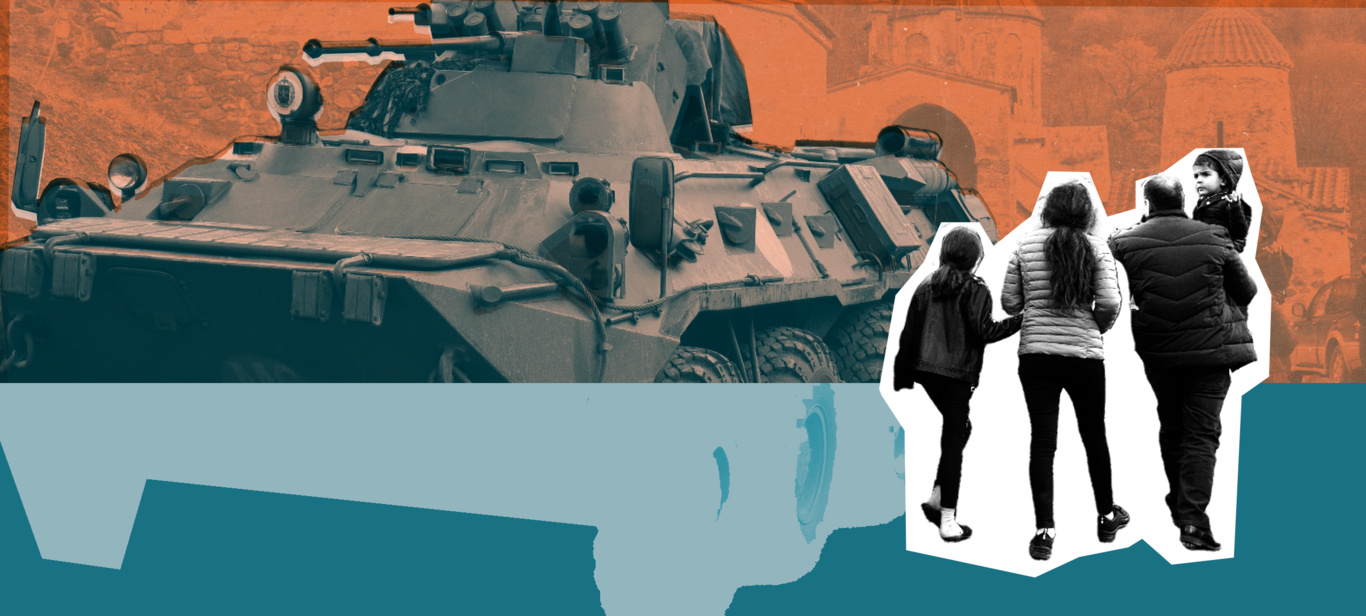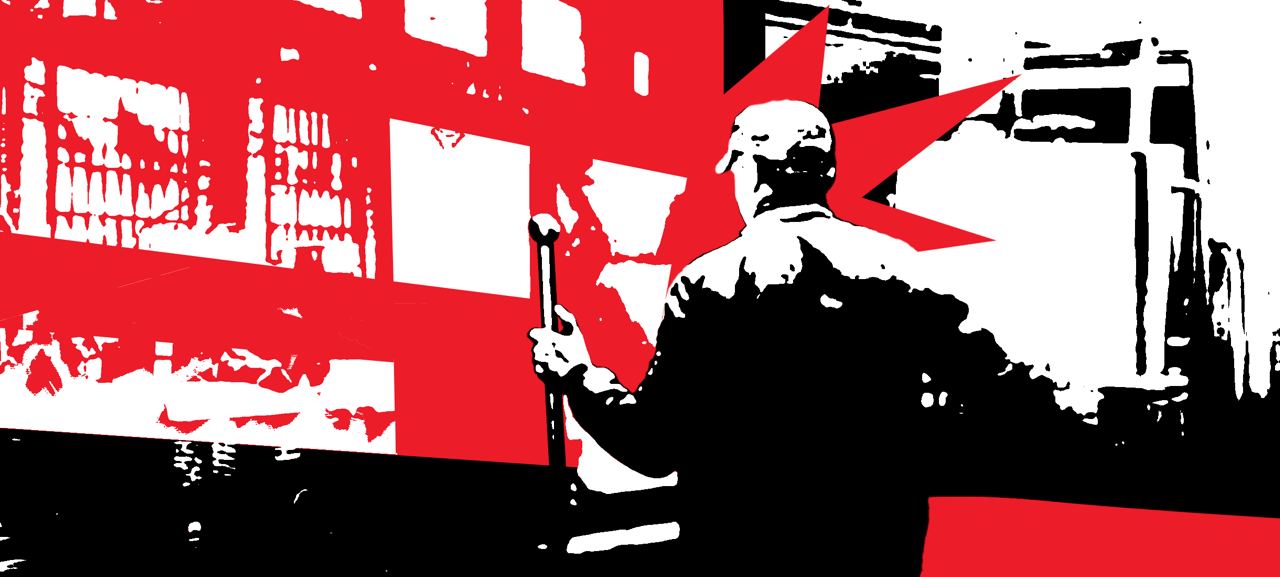July 29. The 229th day of the blockade of Nagorno-Karabakh (Artsakh). 68-year-old Vagif Khachatryan was evacuated by a Red Cross vehicle to Yerevan for a vital heart operation. He was detained at the Azerbaijani checkpoint near the Hakari Bridge. The Azerbaijani military took away Vagif’s passport and ordered him to enter the ward for a doctor's examination. Red Cross employees were monitoring this.
"Dad was taken in an unknown direction. My father was kidnapped," says Vagif's daughter Vera, who became a refugee in 2020 and was forced to leave Karabakh.
The Lachin Corridor
The Lachin Corridor is a mountain road that connects Armenia and Nagorno-Karabakh (Artsakh). It is located in the Lachin District, one of the 7 Azerbaijani districts around Artsakh, which during the First Karabakh War came under the control of the unrecognized Nagorno-Karabakh Republic, and during the Second Karabakh War, Azerbaijan established control over them, as well as part of Artsakh.
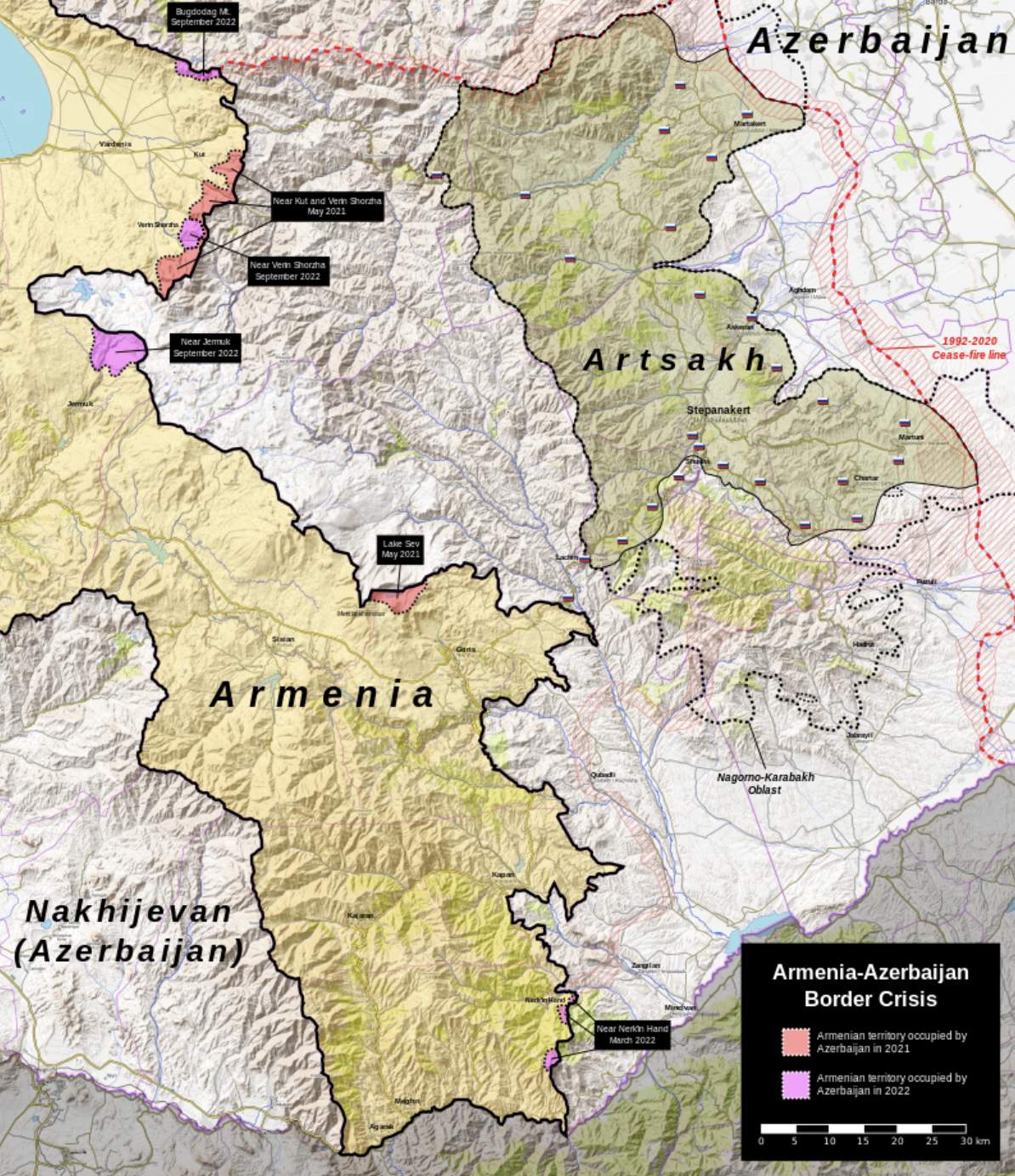
Map: "Armenia-Azerbaijan Border Crisis"
Even after the capitulation of Artsakh and Armenia and the signing on November 9, 2020, of an imposed tripartite agreement on the terms of Baku and Moscow, the provocations did not stop. In the spring of 2021, Azerbaijani troops seized the internationally recognized territory of Armenia in the marzes (provinces) of Vayots-Dzor, Gegharkunik, and Syunik. The cities of Vardenis, Goris, Jermuk, and the village of Sotk came under fire. The seizure of part of the internationally recognized territory of Armenia in 2022 was accompanied by numerous war crimes, including the shooting of eight Armenian servicemen and the dismemberment of two Armenian female soldiers.
After the 2020 war, the Lachin Corridor remained the last road connecting Armenia and Artsakh. On December 12, 2022, the Azerbaijani authorities blocked the Lachin road by sending "eco-activist" protesters there. About 120,000 ethnic Armenians in Nagorno-Karabakh have been left without access to basic goods and services, including essential medicine and care. In December 2022, the Azerbaijani authorities began to cut off gas for the people of Artsakh, which came from Armenia.
"I remember how on December 10 my friend suggested going to Yerevan. I refused. On the morning of December 12, I went to work and read in the news that the Azerbaijanis had closed the Lachin Corridor. Unreal panic began. There was no such panic even during the war. People bought products from shops, there were queues everywhere. Then the Azerbaijani authorities cut off the gas – it generally became difficult. There was panic for about a week. After that, we got used to it and accepted the situation. Products and medicines were exhausting rapidly," says 25-year-old Tigran from the Martakert district of Artsakh.
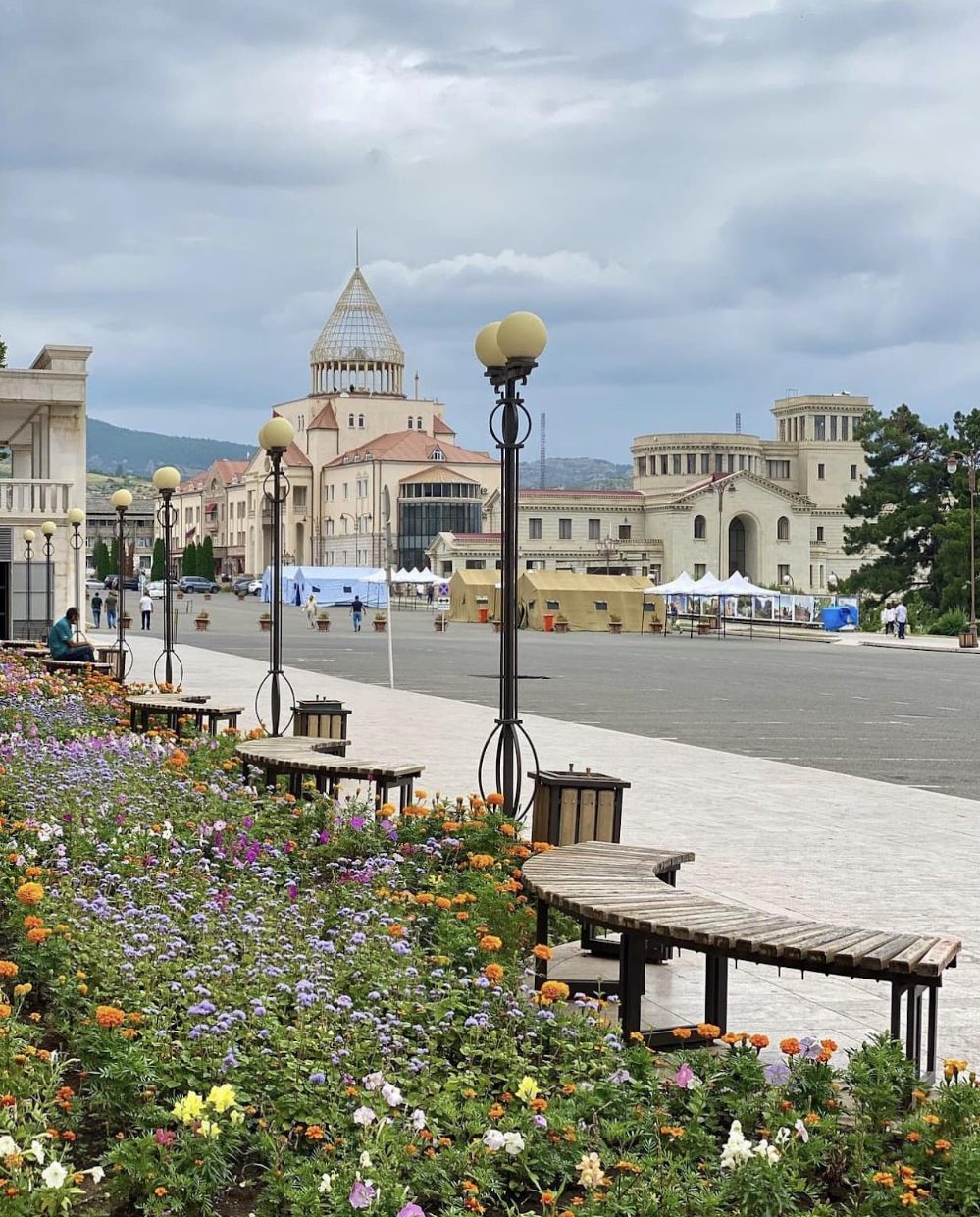
The city of Stepanakert, Artsakh
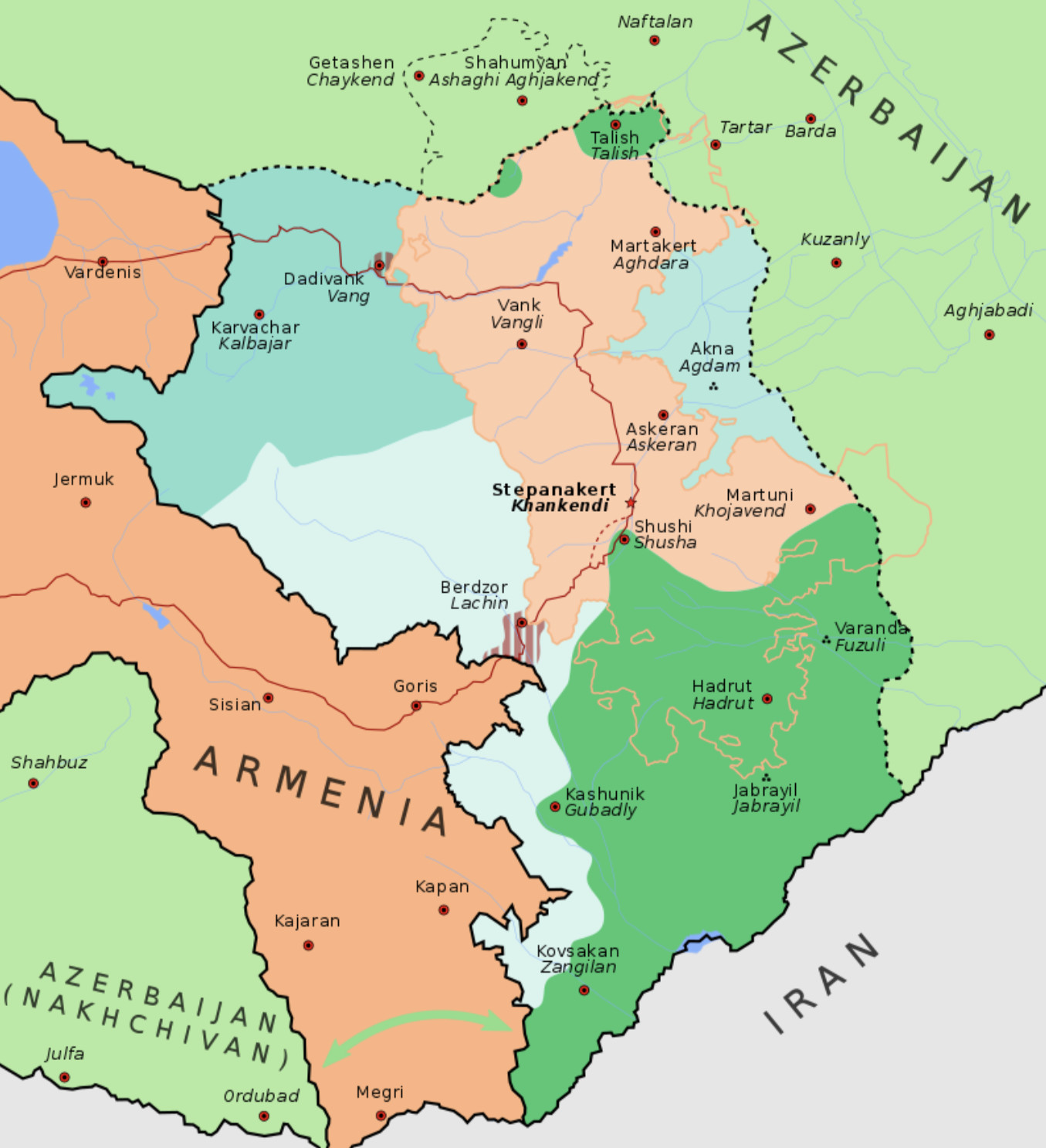 Map of the NKR after the Second Karabakh War. It shows two main roads: Lachin Corridor and Vardenis-Dadivank, but Azerbaijan did not allow the use of roads other than the Lachin Corridor
Map of the NKR after the Second Karabakh War. It shows two main roads: Lachin Corridor and Vardenis-Dadivank, but Azerbaijan did not allow the use of roads other than the Lachin Corridor
A humanitarian disaster
"Electricity supply has been interrupted since mid-January. Because of this, Artsakh organizes delivery based on internal resources. There are not enough to provide them for all the residents of Artsakh, so they decided to supply electricity according to the schedule," says Mary Asatryan, assistant to the Artsakh Ombudsman, who moved to Stepanakert after the war.
Energy in Artsakh is based on a network of small hydroelectric plants. It should be noted that before the 2020 war, Artsakh had a surplus of electricity, which it exported to Armenia. As a result of the 2020 war, most of the hydropower plants were captured by Azerbaijan, as well as the power grids connecting Artsakh and Armenia came under the control of Azerbaijan. Moreover, the most powerful hydroelectric power plant is located in the Sarsan Reservoir, which has almost completely dried up due to the blocking of the water supply to the reservoir by Azerbaijan.
"The next stage of the blockade is on June 15 after the provocation on the Khakari bridge. Azerbaijanis tried to plant a flag on Armenian territory. Accordingly, a small collision occurred because of this. After that, Azerbaijan completely closed access to Artsakh even for the Red Cross and Russian peacekeepers. The checkpoint of the Azerbaijanis near the Lachin Corridor also stands illegally in violation of the tripartite agreement, which was signed after the end of hostilities. Accordingly, the humanitarian situation in the country immediately worsened.
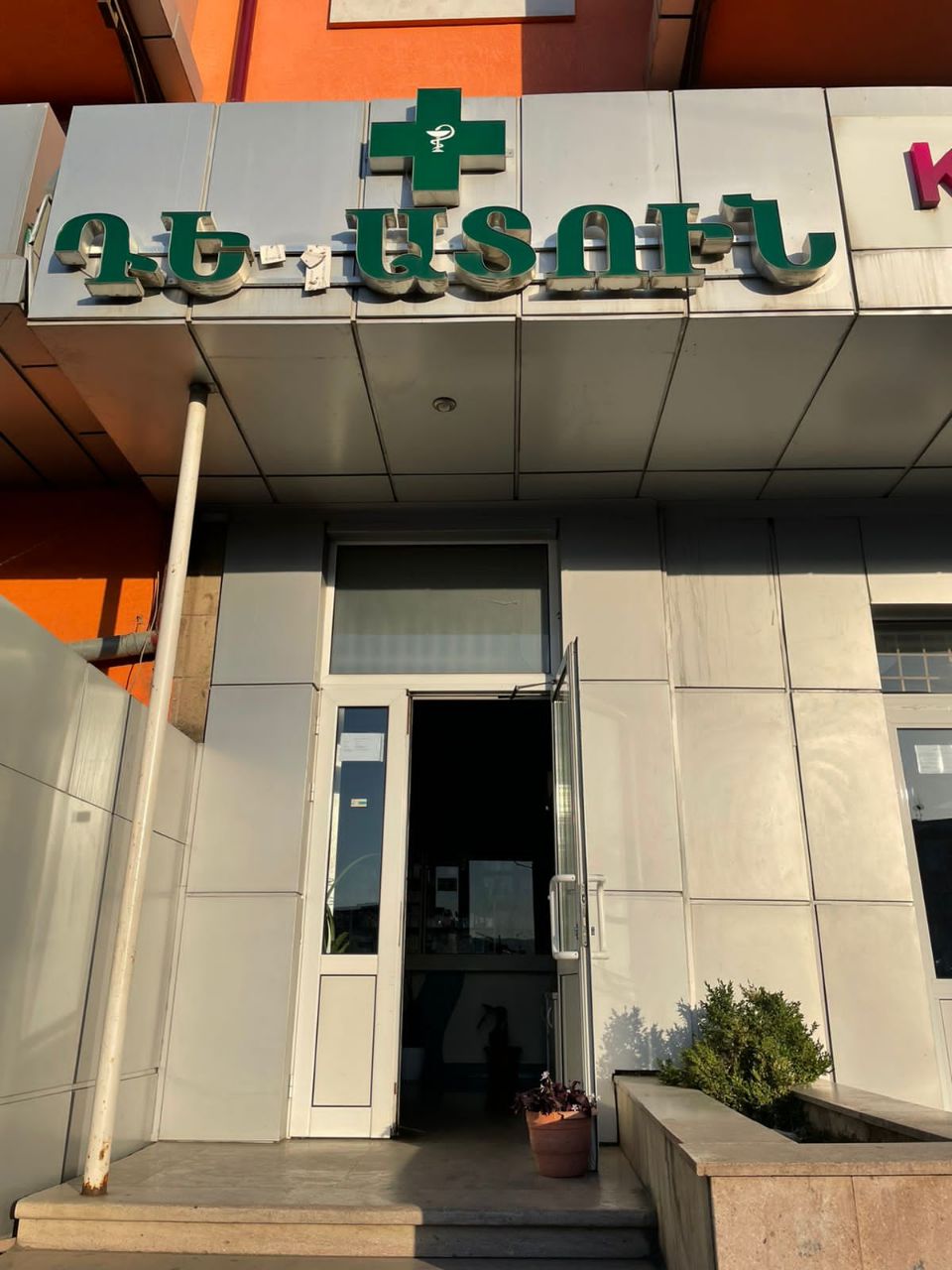

Empty shelves in one of Artsakh's pharmacies. Photos are provided by the author
By this time, Artsakh was already exhausted, and supplies were running out or brought in limited quantities. Products were sold with coupons, but now we don't have that either. Absolutely nothing has been imported to Artsakh for two months now. The lack of medicines and products on store shelves indicates that we are currently experiencing a humanitarian catastrophe. If this continues, people will begin to die of hunger. Several cases of death have already been recorded."
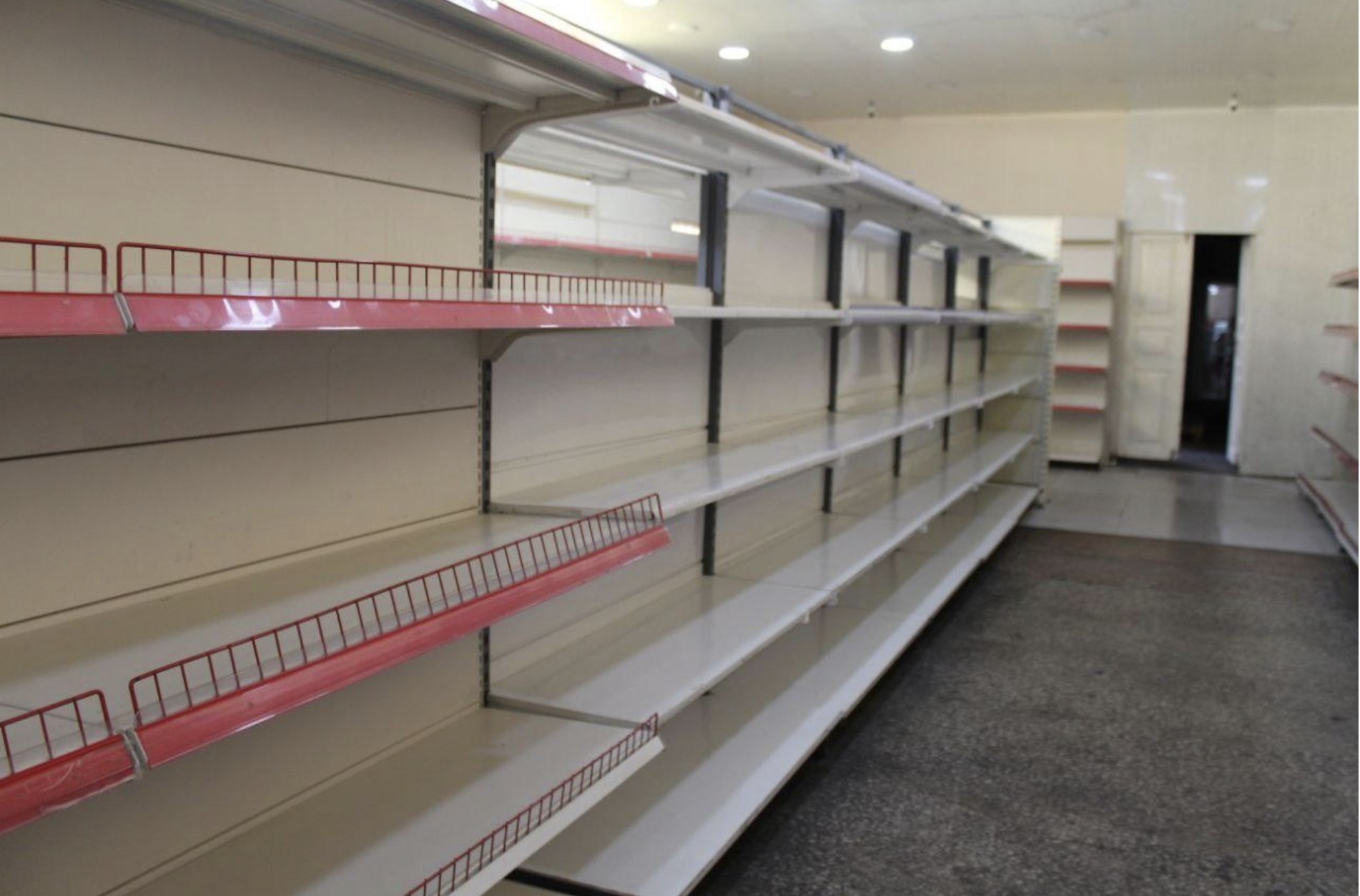

Empty shelves in Artsakh shops
Tragic cases
"There was a case when a pregnant woman in the sixth month lost her child because she did not get to the hospital. She started bleeding. Due to the lack of fuel in the country, the woman could not find a car to get to the hospital in time and save her child. Such stories will only increase and multiply if this continues," says Mary Asatryan.
On July 8, the bodies of two children were found in a car in a village in northern Artsakh after their single mother walked to the nearest town to find food. A 6-year-old girl and a 3-year-old brother started looking for their mother. On the way, the children got tired and got into an unknown car, where they fell asleep from exhaustion. The children probably died from dehydration and heat. In difficult conditions, thousands of citizens are forced to stand in queues for bread. The number of people who faint in queues is increasing every day.
The latest case was the kidnapping of 22-year-old student Alen Sargsyan, who was detained by Azerbaijani border guards while he was on his way to Yerevan to study accompanied by Russian peacekeepers.
On August 15, Stepanakert resident Karo Hovhannisyan died of hunger.
Lines for bread
Mary Asatryan claims that recently there has been a problem with bread in Artsakh:
"There is grain, but due to military provocations on the border, the government does not have time to provide flour to bakeries. After the war, agriculture suffered huge losses. Today, almost all the villages of Artsakh are on the border and the people who work in the fields are simply under the sights of the Azerbaijani forces. There is no such village, or field, which would not be under the sights. They often shoot at tractors and shoot into the air to intimidate. Today, the workers simply do not have time to dry the grain and supply the bakeries with the required amount of flour."
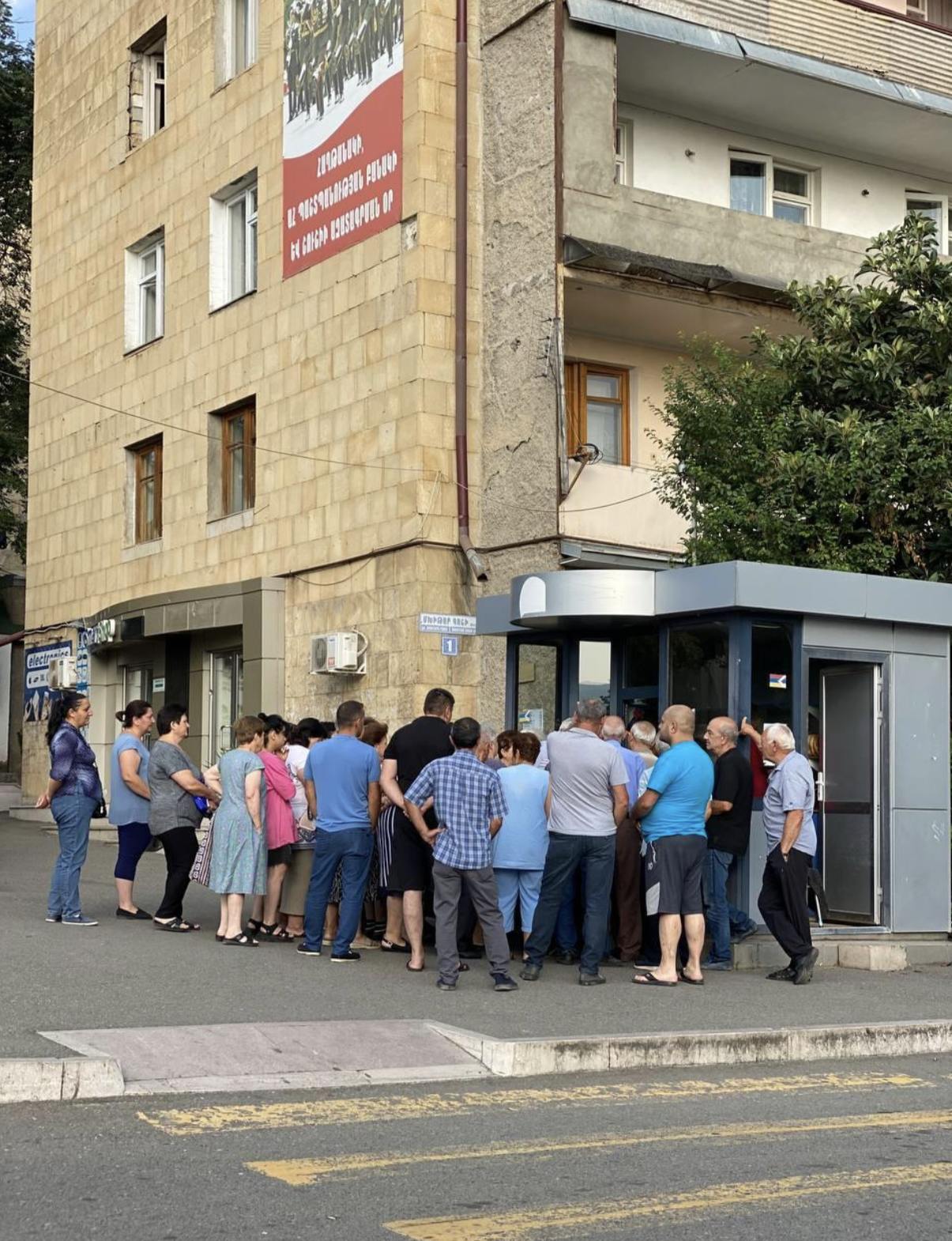
Lines for bread
Tigran from Martakert told how his day began:
"This morning, a friend called and offered to go get bread earlier, so that later you don't have to wait in a huge line. We went at 5 a.m. to the bakery, where they give bread. When we arrived, there was already a queue of fifty people. Now they give only one loaf of bread per family, no matter how many people there are. Today the water was turned on for another two hours. I went to my grandfather's house to water the garden. The light is also turned on for several hours according to the schedule. Each district of Artsakh has its schedule for turning on electricity. We only eat tomatoes, cucumbers, and bread, if we're lucky."
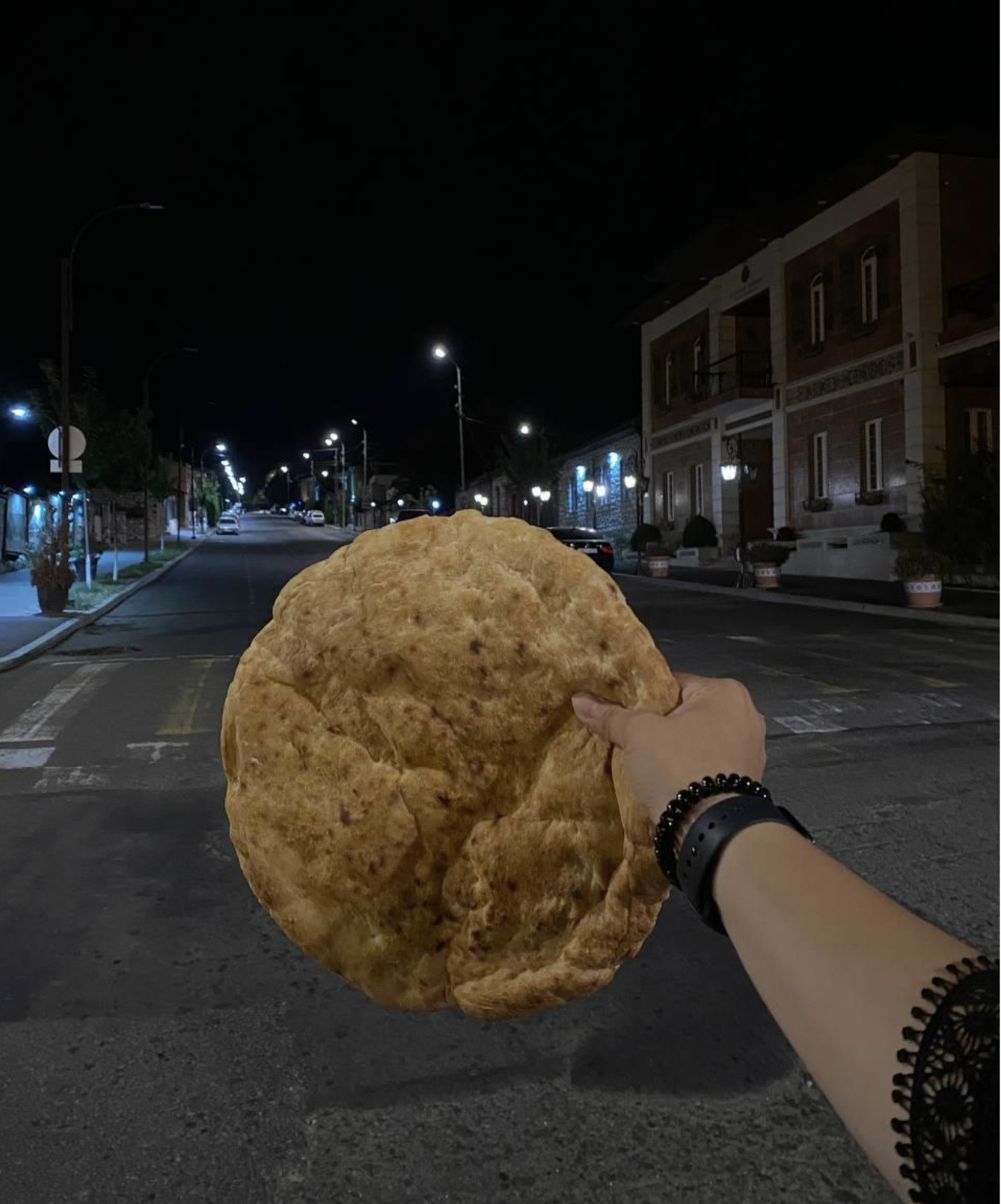
Mary stood in line for several hours to get bread
"People spend most of their time in search of any food, mainly bread, or seasonal vegetables or fruits that grow here. But there is also a problem with this because due to the lack of fuel, it is impossible to bring these products from the villages to the cities. There is generally some kind of harvest, but it is logistically impossible to organize it," continues Mary.
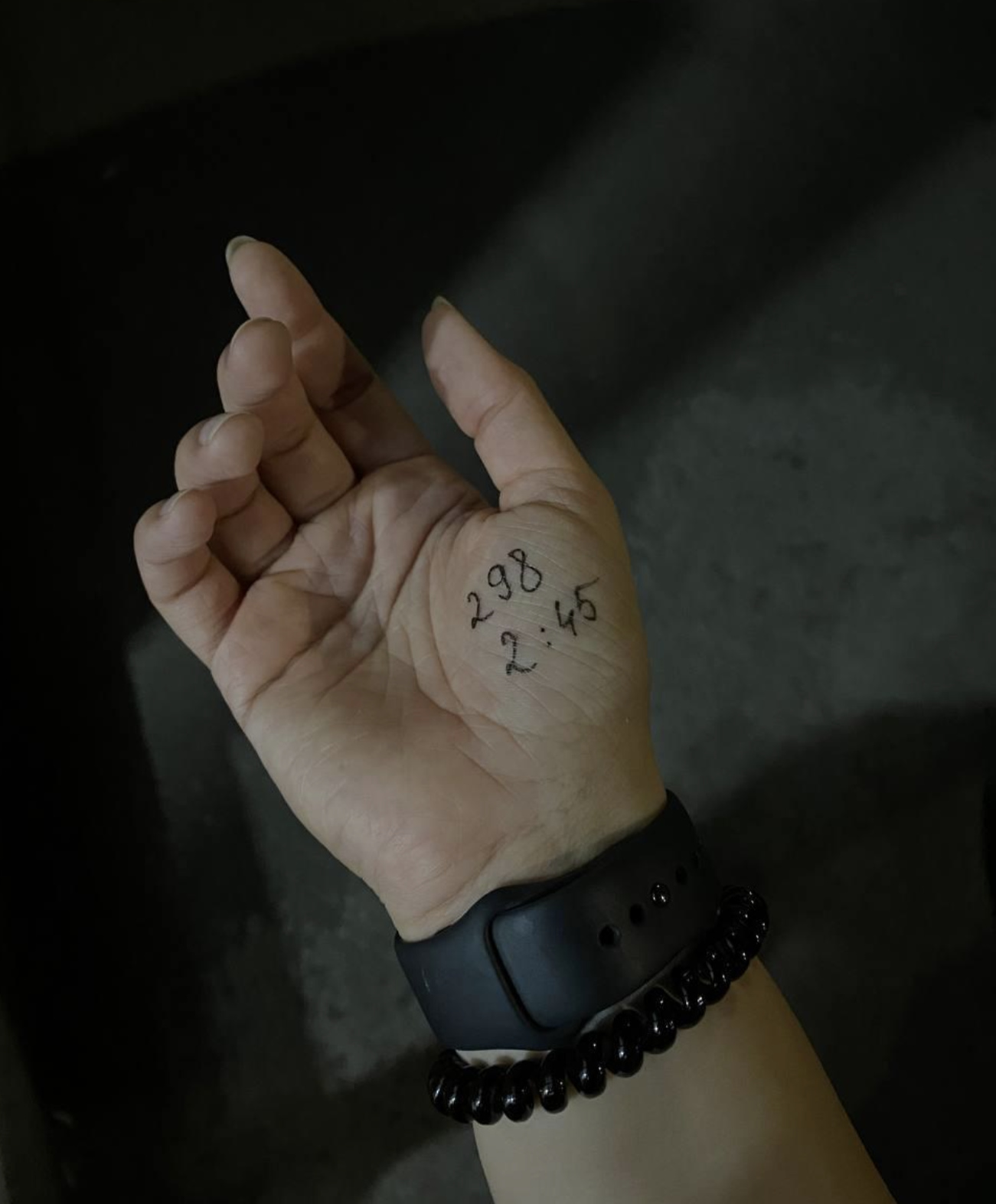
The number and a fixed hour from which the person stands in the queue
Human Rights
Mary Asatryan is convinced that the Azerbaijani authorities are trying to forcibly integrate Armenians or force them to leave the territories.
"There is such a term as "forced subjugation" – forced integration. It is part of the policy of ethnic cleansing. You cannot simply force people to obey you if they have already exercised their right to self-determination. All the more, people adequately assess the politics of Azerbaijan. They understand that they will be at least in danger. With all their actions, with every step, the Azerbaijani government proves that they are not ready for peaceful coexistence with Armenians and all they want is to cleanse Artsakh of Armenians."
According to Tigran, Armenians will be forced to leave Artsakh in case of integration:
"There is no question of living together with Azerbaijanis. No one believes in peace with Aliyev and no one believes that Aliyev will give us some rights, so to speak. If God forbid, there will be the talk of some kind of integration, the people of Artsakh will be forced to leave their homes."
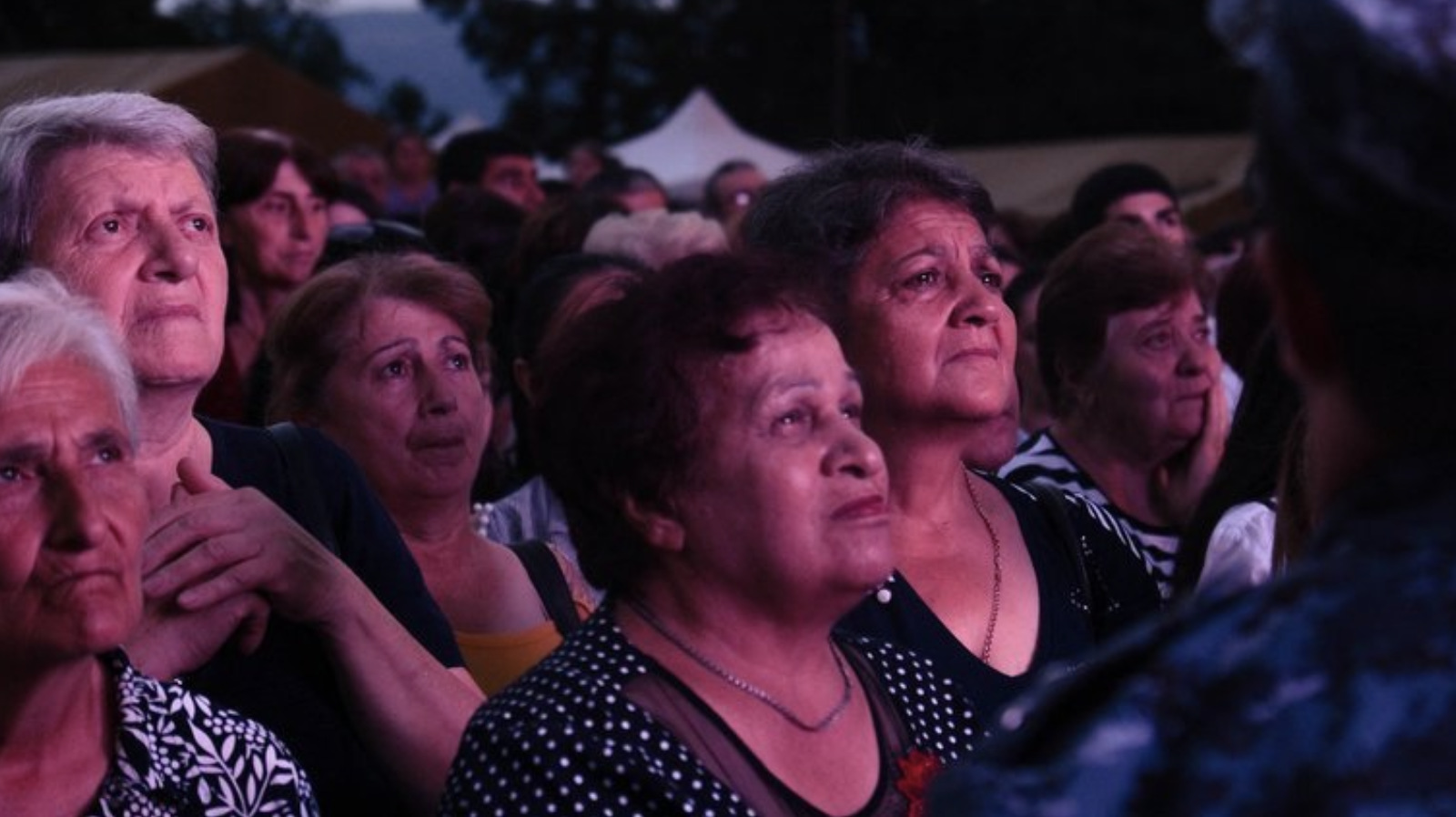
Women in Stepanakert hold a rally demanding the opening of the blocked road connecting Nagorno-Karabakh to Armenia, July 25, 2023. Photo: ANI BALAYAN
Mary Asatryan emphasizes that all the fundamental rights of the people of Artsakh are violated:
"This applies to the right to freedom of movement, the right to family life, and the right to access to health care, everyday life activities, education, etc. There are a large number of people who are in critical condition. For example, people receive dialysis for their kidneys. They need treatment and cannot get it promptly. There are cancer patients who have to undergo chemotherapy, and because of the blockade, they cannot continue the treatment.
Due to the gas cut, children did not attend schools and kindergartens. Many applicants have entered Armenian and foreign universities and they simply cannot leave Artsakh. Accordingly, this is also a violation of the right to education. Any aspect of the organization of normal life is disrupted. 80% of residents do not have hot water. Since July 25, public transport has been completely shut down in the entire territory of Artsakh."
According to Mary, for today gas and electricity are cut off in Artsakh. There are also problems with the network.
"On July 8, Azerbaijan just suddenly decided to restore gas supply for a day. All the people ran to gas stations to fill up their cars. In less than a day, the supply was stopped again. This is a psychological weapon. You mislead the population and sow panic."
The role of the Red Cross and the international community
No humanitarian supplies are made through the Red Cross. Baku justifies the closure of the road by saying that "various types of contraband" were found in Red Cross vehicles arriving from Armenia, including mobile phones, cigarettes, and gasoline. In a statement, the aid organization responded that "no unauthorized materials were found in ICRC-owned vehicles."
"Azerbaijan is trying to completely discredit the Red Cross office in Artsakh. Just a few weeks ago, they announced that contraband was being transported in Red Cross vehicles. That is, they are simply looking for any opportunity to either close the Red Cross office in Stepanakert or forcibly subordinate it to the Azerbaijani branch of the Red Cross to obey Baku. There was no smuggling and there is no ban on the import of cigarettes. They say that we allegedly violated their customs regulations," says Mary.
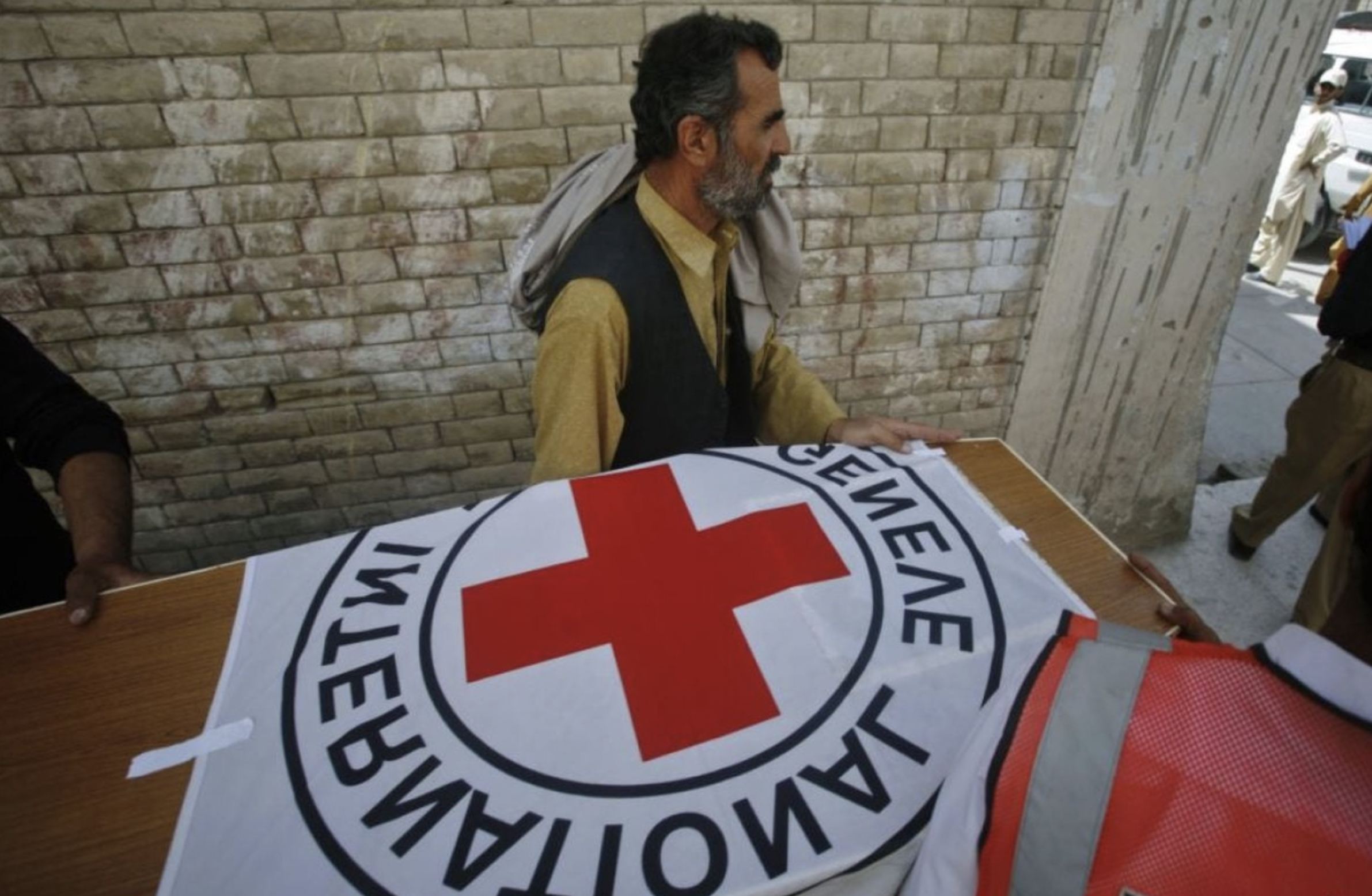
The Red Cross. Photo: Reuters
In a decision dated February 23, the International Court of Justice of the United Nations obliged Azerbaijan to "ensure unhindered traffic" on the highway connecting Armenia with Nagorno-Karabakh: "Azerbaijan should take all measures available to it to ensure the unimpeded movement of people, vehicles, and goods along the Lachin Corridor in both directions." On July 6, the International Court of Justice again confirmed its decision.
The European Court of Human Rights, in its decision of December 21, 2022, also called for free travel.
The Azerbaijani side refused to comply with the decisions of international bodies.
The role of Russian “peacekeepers”
The Russian peacekeeping contingent in Nagorno-Karabakh appeared after the end of the war based on the cease-fire declaration of November 9, 2020. According to the statement, peacekeepers are stationed along the Nagorno-Karabakh contact line and along the Lachin Corridor to monitor the safe movement of Armenians across the road. According to the people of Artsakh, humanitarian supplies are not carried out through the peacekeeping contingent either.
On April 23, Azerbaijan established a border checkpoint at the entrance to the Lachin Corridor, contrary to the Trilateral Agreements. Russian peacekeepers did not make any attempt to hinder the construction.
"We see Russian peacekeepers all the time. They move freely. They can go to Azerbaijan, to the airport in Khojaly (a city in Azerbaijan), they can fly to Armenia by helicopter… Azerbaijanis started building a checkpoint in April just 20 meters from the Russians," says Tigran from Martakert.
The Armenian Telegram channel distributed a video where the Azerbaijani military is trying to plant its flag on Armenian territory. The video shows Russian peacekeepers accompanying the Azerbaijani military.
Other scandalous cases are also connected with the inaction of the Russian side. In October 2021, an Armenian tractor driver was killed by an Azerbaijani sniper on a field in Martakert. According to eyewitnesses, Russian peacekeepers weres next to the tractor driver at that moment, who did not influence the tragedy.
"He drove through the field. Russian peacekeepers were nearby. Even one peacekeeper sat next to him near the tractor. But this did not stop the Azerbaijani sniper. It is almost two kilometers from the place where a civilian was killed to the border with Azerbaijan," Martakert mayor Mikael Gurdjian told reporters.
Even though the Azerbaijani military regularly shoots at the civilian residents of Artsakh, as a result of which people die and are injured, during the entire period of the Russian peacekeeping contingent stay in Artsakh, not a single Russian "peacekeeper" was harmed by the Azerbaijani military.
Negotiation process. When will the blockade end?
"The Artsakh side very often says that it is ready to engage in dialogue, but only under one condition: if the right to self-determination is respected. That is, they will sit down at the negotiating table with us as equals. Azerbaijan flatly refuses to meet with representatives of Artsakh. They mockingly invite Artsakh representatives to Baku. Allegedly, the parties were supposed to meet in Bratislava, but the negotiations were interrupted. Azerbaijan behaves destructively and proves every time that they can solve this issue by force. If you don't obey in a good way, then we will do all this work with the use of force," emphasizes Mary.

Photo provided by the author of the article
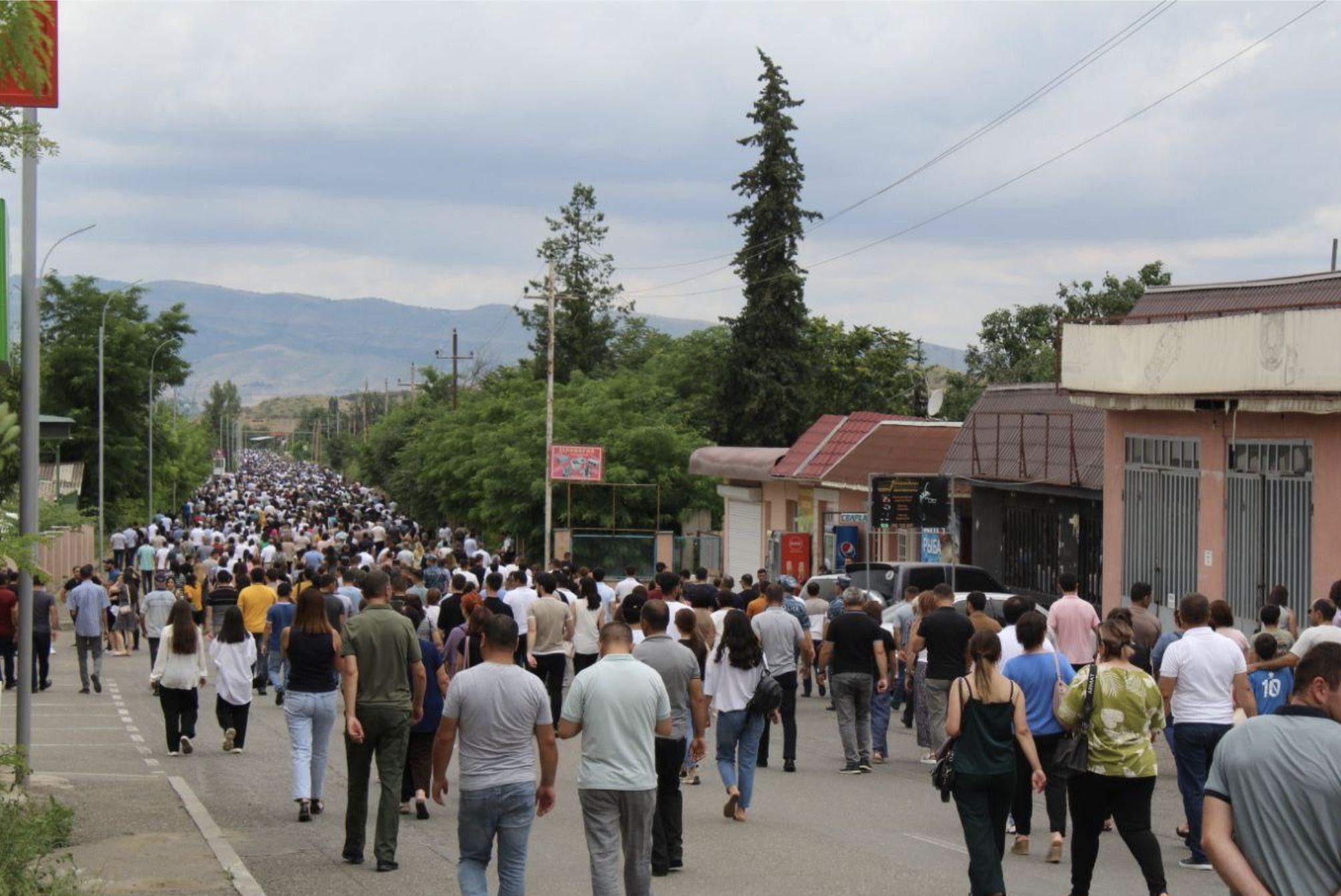
Photo provided by the author of the article
The mood of the Armenians of Artsakh
Mary Asatryan is convinced that Azerbaijan is not ready to resolve the issue peacefully, and the Armenians of Karabakh will not agree to the integration plan with Azerbaijan:
"They show a destructive position in the negotiation process, every time they resort to force. During the blockade, we saw how they staged an armed attack several times. For example, on March 5, a brigade of policemen on duty was attacked. Three people died.
On June 28, several military units of the Artsakh Defense Army were attacked with drones and artillery. Four people died. Once a pregnant girl told me: “Our whole life is spent in queues”. And this is how you can describe the current life in Artsakh. People are very anxious, they do not know what awaits them tomorrow, people live for today. They have seen at least three wars. By the way, there was a blockade during the First War in the 90s, too. For almost a year and a half, people also lived without any connection with Armenia, without any supplies, and saw the war in parallel with this. For many the blockade is deja vu, most likely."
Mary emphasized that the unshakable priority for the people of Artsakh will always be their home, and the blockade cannot affect it.
